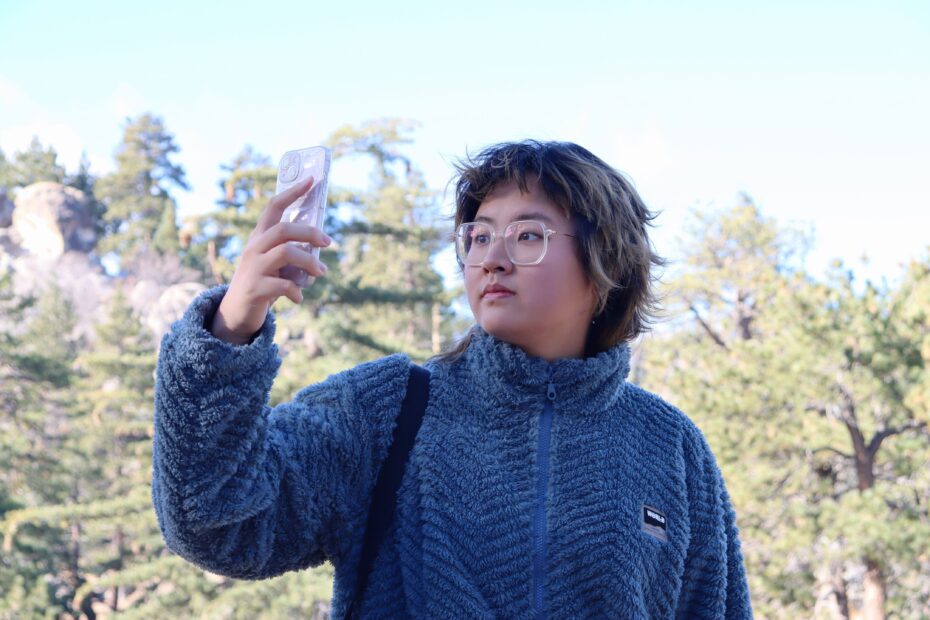This article is part of a series featuring recent alumni and their exit essay interviews upon program completion. Xingyao “Shira” Wu earned the Master of Cinematic Arts with an emphasis in Media Arts, Games & Health and her portfolio is here.
Describe your background and how you shaped your MA studies to integrate within the program.
I have a background in Game Design and Computer Science. During my undergraduate years, I yearned for more than just creating games for entertainment; I wanted to leverage this powerful medium to make a meaningful impact. This desire guided me to pursue a Master’s degree in a program that aligns with my aspirations. While working on my MA studies, I wanted to maintain my creative habits, so I selected some MFA and Production courses. Over two years, I found myself navigating between the realms of creation and stepping out of my comfort zone, engaging in research, readings, interviews, and networking.
What core resources did you use at USC, CMBHC, and Cinematic Arts to achieve your goals?
I am interested in location-based entertainment, and USC has excellent resources. I enrolled in a Themed Entertainment course instructed by Joe Garlington and later served as a student assistant for another one of his courses. At the same time, I volunteered on an interactive theater project and threw myself into the networking jungle. Despite being relatively new to this field, reaching out to people and taking courses gave me insights into the industry and clarified my path forward.
What were your major accomplishments during your degree?
On a practical level, a game Gradually that I contributed to was shown both at the USC Games Expo and the Tokyo University of Arts. A YouTuber also featured our game in a play-through video on their channel, marking my first foray into showcasing my work beyond academic assignments.
On a personal level, I think I’ve grown a lot. I am on the way to becoming myself, and these two years have helped me achieve that.
(And I can directly write an essay in English right now! Like this one!! 😀 I had to draft in Chinese two years ago, hehe)
Which classes were most helpful to your growth and education?
CTIN 575 – Health and Interactive Entertainment Research Lab, instructed by Marientina Gotsis
Keywords: perspective-taking, empathy, resilience, diversity
This class didn’t speak much to me when I took it in the first semester, but I can tell how important and meaningful it became later in my studies. Those keywords say much about this program (personally speaking, hehe) and about what being a great creator for people means. We did role-play interviews, watched movies and wrote reports, designed workshops, and other things that I never did before. It was a fun and memorable experience.
CTIN 534 – Experiments in Interactivity I, instructed by Andreas Kratky
Keywords: critique, design
I LOVE THIS CLASS so much. Weirdly, I never felt special about these two classes, but they have influenced me deeply. Thanks to my fantastic cohort, this class created a wonderful environment to share each other’s ideas and comments, and we learned how to critique in a helpful, respectful, and insightful way, which turned out to be an essential skill to have in a collaborative creative environment.
This class also helped me see the connections between cinema and interactive media, environments and narrative, sounds and space, games and life. It has helped me find my path as an interactive experience designer.
How did you use your directed research time?
I engaged in many activities, including role-play interviews, collaborative game design document revisions, monitoring playtests, watching animations, brainstorming interview questions, and learning about diverse projects my peers undertook.
Summarize your integrative project.
At a macro level, my integrative project encapsulates a journey of self-discovery. At a micro level, I developed a new portfolio website showcasing my work. I pursued various endeavors, from applying for jobs and artist residencies to engaging in therapy, learning Japanese, polishing existing games, attending conferences like GDC, participating in hackathons, and proudly finishing a research paper.
Where do you wish to be in 1, 3, 5, and 10 years?
In one year, I envision myself in Japan, perhaps at teamLab. I also want to showcase my work at the USC Games Expo 2025. Over the next three to five years, I foresee myself exploring opportunities in Northern Europe, transitioning into a new job or phase, or even contemplating a return to my academic journey. Ten years later, I aspire to establish my own business, potentially a studio, either in China or elsewhere.
What do you think is the biggest challenge in interdisciplinary work?
In a teamwork setting, know that people from interdisciplinary fields use different languages, even though they all speak English. Acknowledging that and learning to speak each other’s languages can sometimes be challenging to build positive team dynamics. Generally speaking, it is also a part of treating teammates with empathy, which is the key to creating a good collaboration experience for everyone.
In an individual work setting, stepping out of my comfort zone is the biggest challenge. I must push myself beyond the boundaries and experiences I have set for myself and keep absorbing new ideas and techniques. Interdisciplinary work means work that can’t be easily categorized by me, requiring continuous learning and creativity.
What recommendations do you have for other students in your program for them to be successful?
Follow your gut.
Don’t overthink.
Talk with peers and professors.
Seek help if you need it.
It’s okay not to be successful. 🙂
